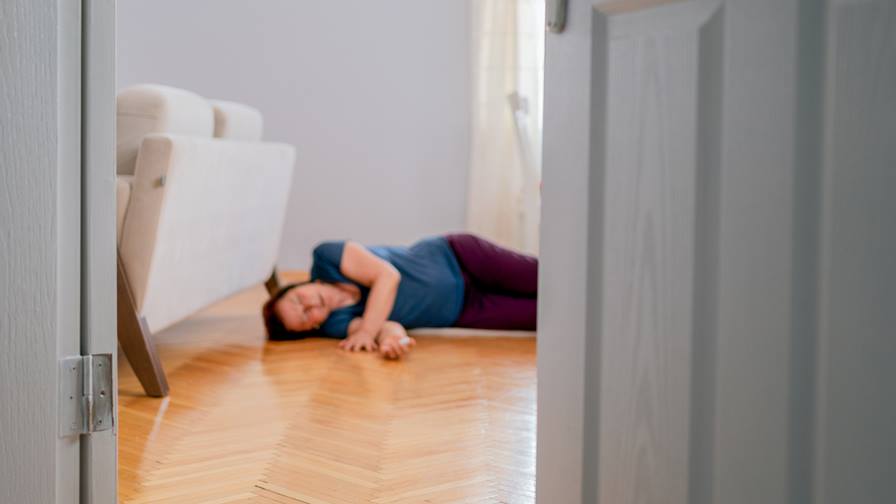A young Utah woman with COVID-19 was home alone with her young son when she suddenly collapsed with a seizure. Luckily she was on the phone with an Intermountain CTIS caregiver at the time, and that caregiver knew just what to do.

The caregiver, who we’ll call “Sarah” because she wishes to remain anonymous, has been volunteering with the Utah Department of Health for several years and the work has really picked up with COVID-19. Anytime someone tests positive for the virus, volunteers like Sarah will contact the person to determine who they may have exposed to the virus. Then she’ll contact those potential exposures and encourage them to isolate themselves to prevent further spread. She was calling one of these people, a woman whose husband had tested positive and had later tested positive herself, when the woman suddenly became incoherent and then unresponsive before the call was disconnected.
Sarah quickly dialed 911 and asked emergency responders to go make sure the woman was okay. She let them know the woman was COVID-19 positive and her husband wasn’t at home. Then Sarah let the experts take it from there.
A few hours later, Sarah received a phone call from the woman’s husband. He’d seen an unfamiliar number on his wife’s cell phone and called back. He’d wondered who had called the ambulance for his wife and thought the mystery caller might be the one he should thank. Sarah explained who she was, explained what she’d done, and asked for the rest of the story.
“The husband said he got a call from the fire department while he was on his way home from work letting him know his wife had had a seizure and asking him to hurry home,” Sarah says. “The EMTs had opted not to take her to the hospital because of her COVID status and were trying to stabilize her at home. By the time he called me, she was still weak but doing okay. He said he was very grateful that someone was able to help at exactly the right time.”
Sarah says the woman didn’t have a history of seizures, so this was very unexpected. She’s in her early 30’s and was in good health. Her husband and son both had a mild case of the virus, but she’d been hit very hard and was very sick. It’s likely that the seizure was related to her weakened state because of the virus. Without fast treatment, the seizure could have been potentially life-threatening.
“I’m not a hero,” Sarah says. “I’m not a clinician or one of the people on the front lines, I’m just the person on the computer and the voice on the phone. It was a miracle that I happened to be on the phone at the right time.”
“I think she absolutely is a hero,” says Arlene Anderson, CTIS clinical informatics portfolio manager. “She kept her cool, took the right steps, and knew exactly what to do. Not all heroes wear the masks at the bedside. Regardless of where we work at Intermountain, we can step up and make a difference, and that’s exactly what Sarah did.”
Sarah adds that as Utah’s COVID-19 cases increase, there’s an ever-increasing need for volunteers to help with contact tracing. She’s been helping track 80 to 100 exposures every day, and the numbers keep going up. There’s an especially great need for volunteers who speak Spanish. If you’re interested in volunteering, contact your local health department. No medical training is required.

